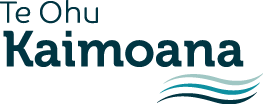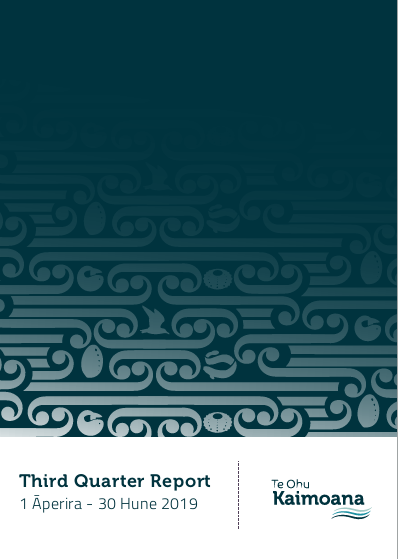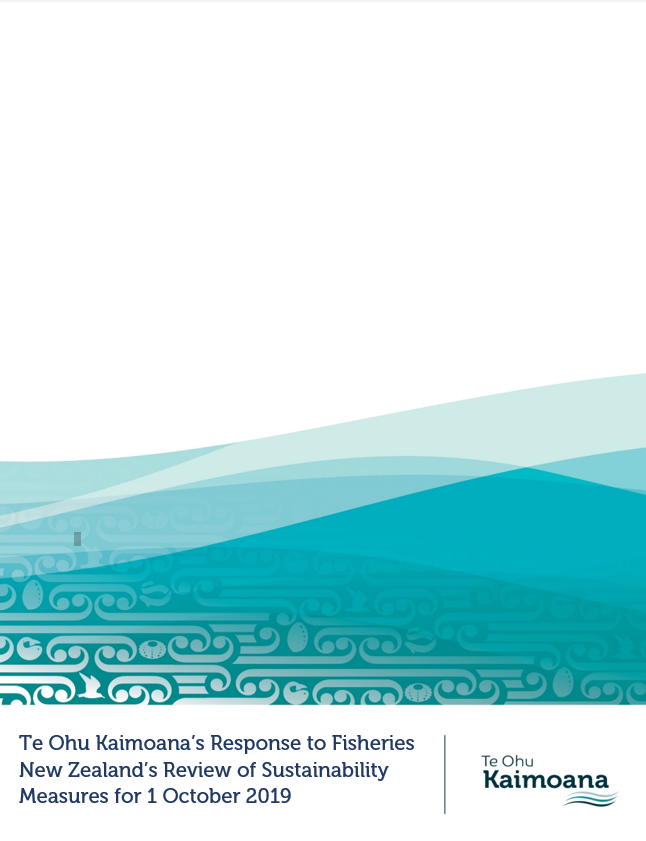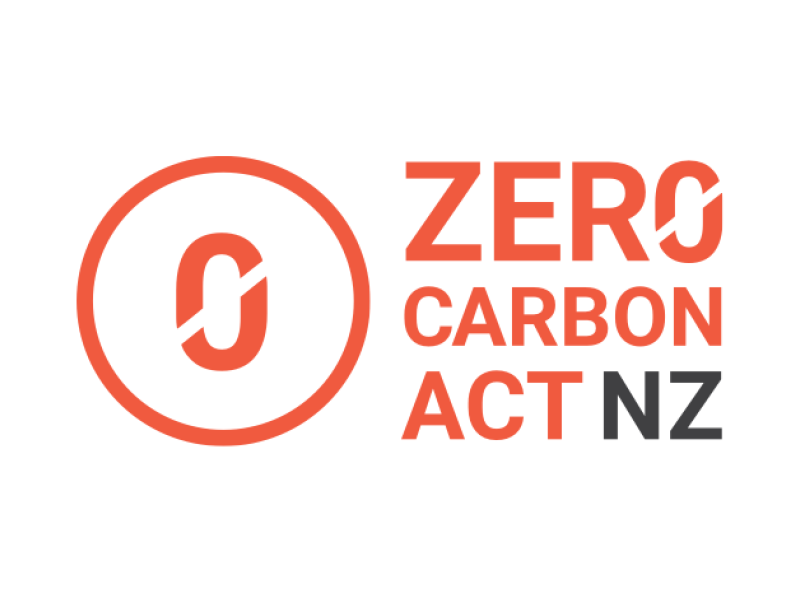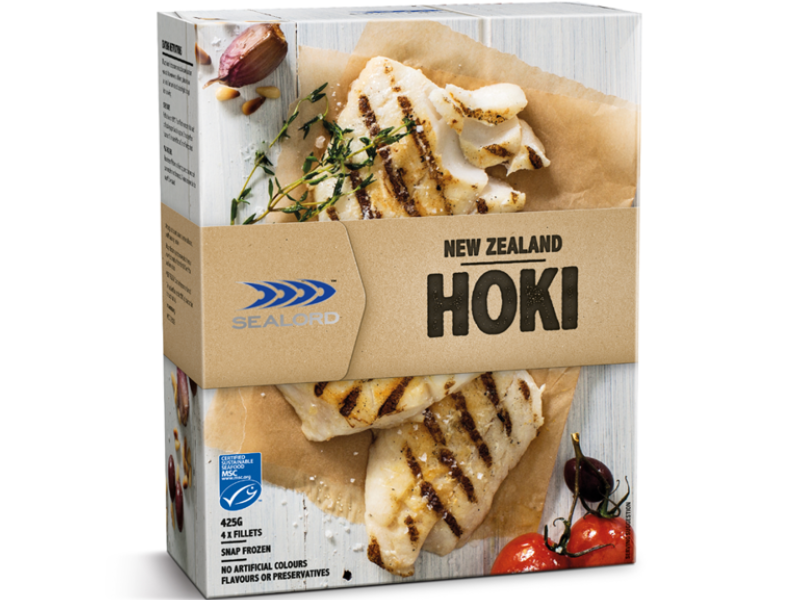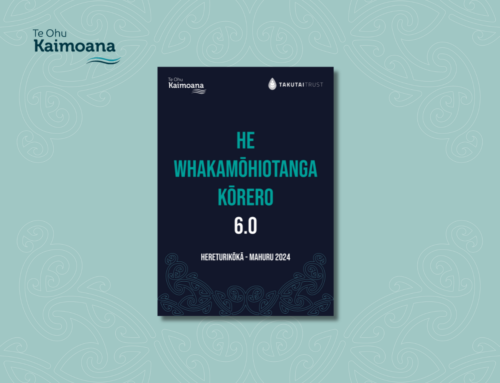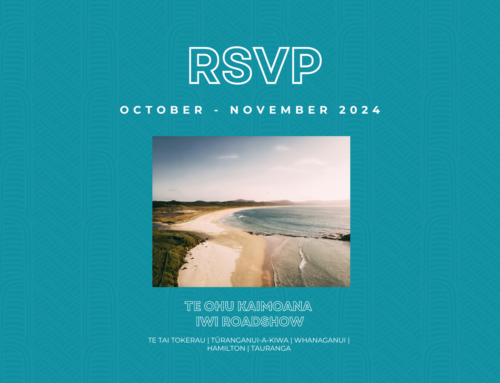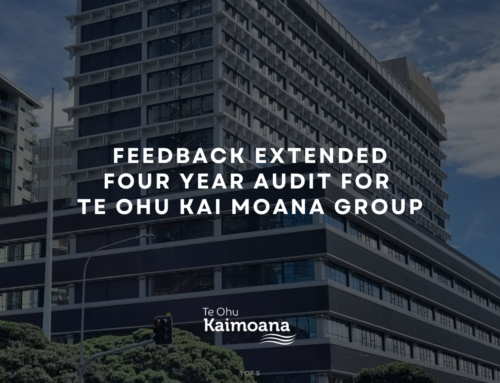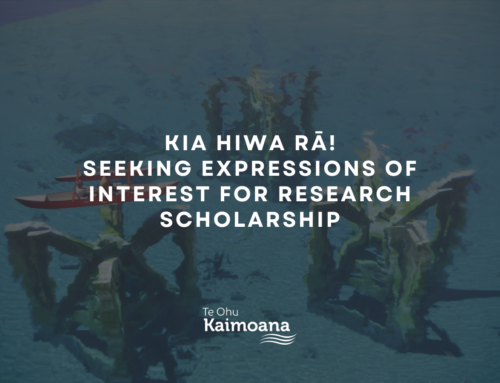On behalf of the Te Ohu Kaimoana Board we are pleased to provide you with our Third Quarter Report against the annual plan for the 2018/19 financial year. This quarter covers the period from 1 April to 30 June 2019.
(Please click report below to view)
1 October 2019 Sustainability Review submitted
Thank you for informing Te Ohu Kaimoana’s response for the 1 October 2019 Sustainability Review measures. We appreciate the time you have taken to attend hui, meet kanohi kitea, talk over the phone and email to inform our position.
Our response is shaped by your collective aspirations for fisheries management. You can find a link to our response here. You are receiving this in advance of Te Ohu Kaimoana sending this through to Fisheries Minister Stuart Nash and Fisheries New Zealand.
Next steps?
We have offered to meet with the Minister of Fisheries and/or Fisheries New Zealand officials to discuss our positions for this year’s review as well as potential stock inclusions for next year. If you have any stocks of significance, or any issues you would like us to raise then please send them through to us. We are always looking at ways to improve our process and appreciate any feedback you may have.
Zero Carbon Bill Placeholder Submission
We are seeking your input to the Zero Carbon Bill.
We submitted a placeholder response to the Environment Select Committee on the Zero Carbon Bill. We prefer to seek feedback from Iwi before submitting any response. On this occasion we had a 24 hour window to submit our response – we apologise that we didn’t have time to seek your views before the closing date. However, our placeholder response will allow us to be speak to the Environment Select Committee, at which point we will incorporate Iwi feedback in our presentation to the Environment Select Committee.
You can view our full submission to the Environment Select Committee here.
The Amendment to the Climate Change Response Act 2002 (Zero Carbon Bill) can be found here.
Please contact Monique Holmes, monique.holmes@teohu.maori.nz with your feedback by the 16 August 2019, so that we can ensure we’re representing Iwi views when meet with the Select Committee.
Climate change is likely to affect Māori rights in fisheries. The Zero Carbon Bill plans for how the government will address climate change related adverse events. Our placeholder response highlighted the importance of a partnership approach that allows iwi/Māori to co-design a pathway towards a climate resilient Aotearoa. We look forward to hearing your views on our response, the Amendment to the Climate Change Response Act 2002 (Zero Carbon Bill) and any other input you have in this area.
Update on the hoki fishery
We were pleased to host Iwi and Sealord at Te Ohu Kaimoana on 19 July 2019 to discuss the future management options for the hoki fishery.
As a result of the hui, Iwi representatives and Sealord have collaborated to design a management approach for the 2019/20 fishing year. The outcome is that Sealord supports the continuation of the 20,000 tonne industry shelving of the western stock and will also support additional shelving post the FY19 WCSI hoki season if needed. They will also be deploying several of their vessels into other fisheries to achieve even higher reductions in catch. This is already happening in the current year with FV Tokatu fishing for hoki near Tasmania and FV Rehua fishing for orange roughy.
Iwi hoki quota owners noted that their role is to ensure the right thing is done for the hoki fishery, for Tangaroa and for future generations. Iwi representatives who attended the hui have made a commitment to regularly meet to discuss future management approaches based on the latest science developments, fishing intelligence from Sealord and policy advice from Te Ohu Kaimoana. They are encouraging wider participation from Iwi. Hoki is Aotearoa’s largest fishery and the warming sea temperatures are introducing a degree of complexity to fisheries management that we have not previously witnessed.
The discussion at the hui greatly informed Te Ohu Kaimoana’s response to Fisheries New Zealand’s October 2019 Sustainability Review, which you can read about above.
